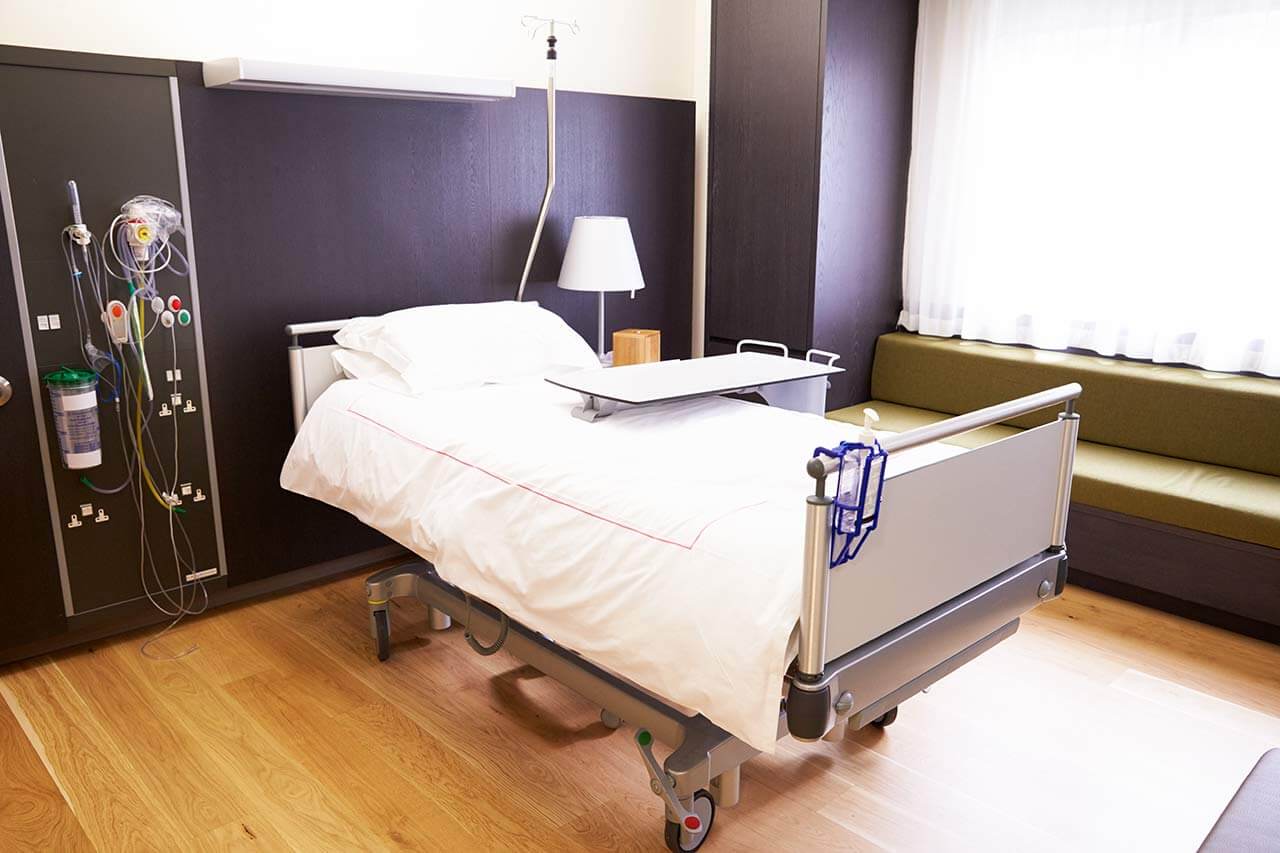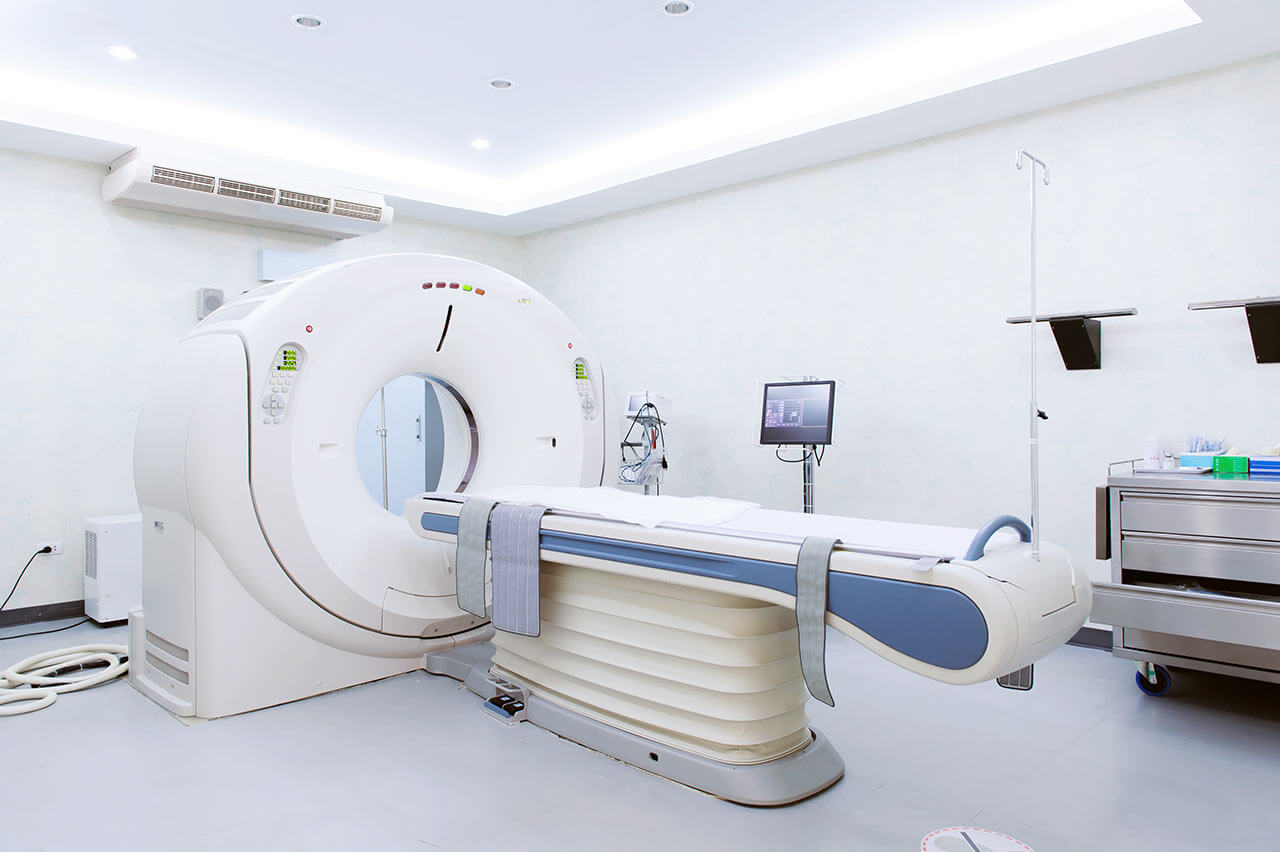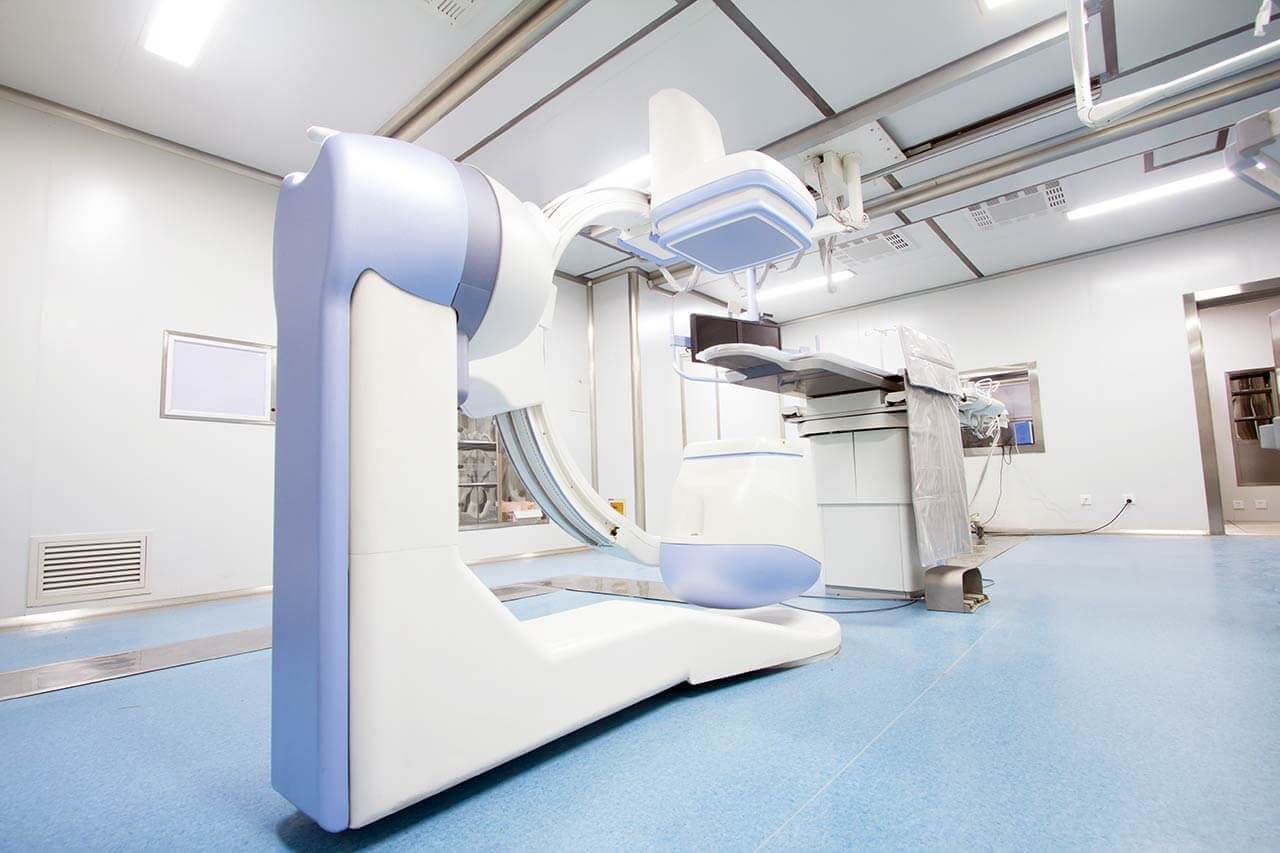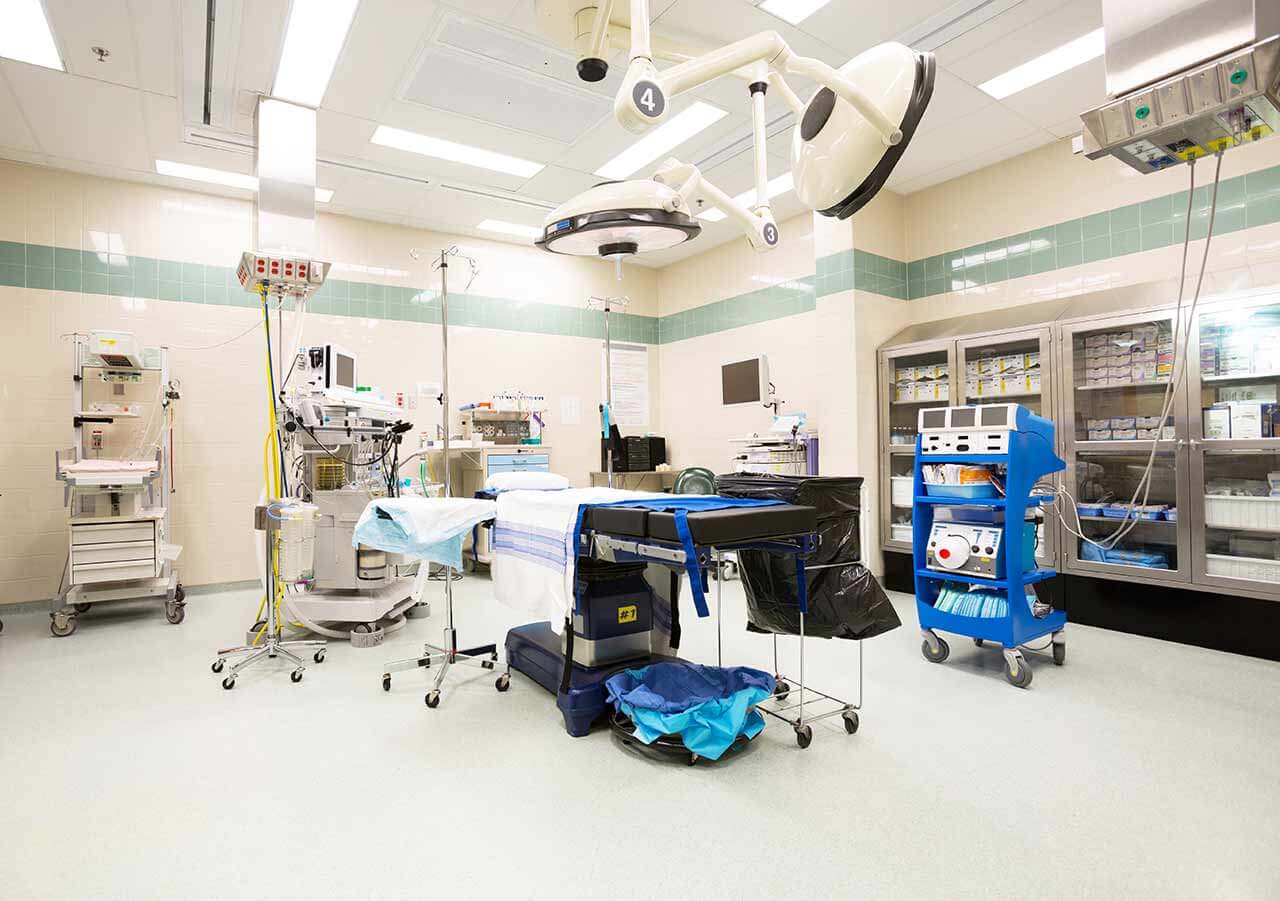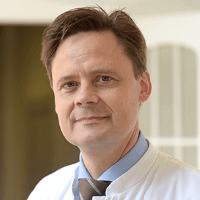
About the Department of Neurology and Epileptology at Charite University Hospital Berlin
The Department of Neurology and Epileptology at the Charite University Hospital Berlin offers a full range of diagnostics and conservative treatment of diseases of the central and peripheral nervous system. The focus is on patients with stroke and other cerebrovascular diseases, multiple sclerosis, Parkinson's disease, tremor, neuropathies, muscle diseases, epilepsy, chronic headaches, and facial pain. The medical facility also provides consultations for patients with rare and particularly complex neurological disorders such as amyotrophic lateral sclerosis, myasthenia gravis, encephalitis, and others. The department annually treats more than 8,000 inpatients, for whom 170 beds are provided. More than 20,000 patients a year receive qualified medical care in the specialized outpatient clinics of the department. The healthcare facility has excellent diagnostic capabilities for examining the brain and spinal cord and anatomical structures of the peripheral nervous system: there are specialized facilities for electroneurography, electromyography, evoked potential recording, electroencephalography, duplex sonography, Dopplerography, computed tomography, magnetic resonance imaging, and other tests. As for the treatment, patients are offered effective drug therapy regimens, physiotherapy, exercise therapy, massage, electrical stimulation, botulinum toxin therapy, and other therapeutic measures. The department's physicians approach the choice of treatment tactics with the utmost responsibility, strictly following the current clinical protocols and recommendations of the German Neurological Society (DGN). The Head Physician of the department is Prof. Dr. med. Matthias Endres.
The department's team of neurologists treats patients with multiple sclerosis on a daily basis. The medical facility is certified by the German Multiple Sclerosis Society (DMSG), which confirms the high level of specialization in this field. Multiple sclerosis is a chronic disease in which the immune system attacks the nerve cells in the brain and spinal cord. The main symptoms include muscle weakness, dizziness, loss of coordination, unsteady gait, vision problems, and decreased sensitivity. The disease is more common in women and usually develops between the ages of 20 and 40. To diagnose multiple sclerosis, specialists use magnetic resonance imaging and analysis of cerebrospinal fluid obtained by lumbar puncture. In some cases, additional tests, such as electroneuromyography and evoked potential recording, may be required. Treatment is based on comprehensive drug therapy. Patients are prescribed immunosuppressive and hormonal medications, immunomodulators, muscle relaxants, as well as pain relievers and emotional correction agents. The drug treatment is supplemented by physiotherapy, massage, and specially selected physical exercises to maintain physical activity. Today, multiple sclerosis is considered an incurable disease, but modern treatment methods make it possible to effectively control its course. The main goal of therapy is to relieve symptoms, slow down the progression of the disease, and maintain a high quality of life. The department's physicians have extensive experience in the treatment of multiple sclerosis and have a full range of state-of-the-art equipment and therapeutic approaches to provide quality medical care to patients with this diagnosis.
The department is also one of the leading medical centers in Germany for the treatment of movement disorders associated with dysfunction of the nervous system. Experienced neurologists provide comprehensive medical care for patients with Parkinson's disease, atypical parkinsonism, dystonia, tremor, and rare movement disorders caused by metabolic or genetic reasons. The department's specialists most commonly treat Parkinson's disease, a degenerative brain disorder manifested by resting tremors, stiffness and slowness of movement, changes in gait, and balance disorders. The therapeutic process begins with a comprehensive evaluation, including a medical history, neurological examination, blood tests, DaTSCAN (a special type of brain scintigraphy to detect dopamine deficiency), and levodopa testing. In addition, MRI, PET, SPECT, cerebrospinal fluid analysis, ultrasound, and neuropsychological testing may be needed. Since Parkinson's disease is currently incurable, therapy is aimed at relieving symptoms and improving quality of life. The basis of treatment is drug therapy with medications that increase dopamine levels in the brain, which helps reduce tremors and improve motor function. In addition, patients are prescribed physiotherapy, occupational therapy, therapeutic exercise, and speech therapy. Lifestyle changes play an important role in the success of treatment: doctors recommend regular moderate physical activity, a healthy diet, and normalizing sleep patterns. In complex cases and in advanced stages of the disease, deep brain stimulation may be used. In this neurosurgical procedure, small electrodes are implanted that, by electrically stimulating certain areas of the brain, regulate the abnormal activity that causes the symptoms of the disease.
The clinic has also earned a high reputation among German neurology centers for the treatment of epilepsy. This chronic condition is caused by increased activity of individual nerve cells in the brain. The main manifestation of the disease is epileptic seizures, which are accompanied by tremors, convulsions, and loss of consciousness. For diagnosis, doctors conduct a neurological examination, the main method of which is electroencephalography, a study of the electrical activity of the brain. When prescribing treatment, specialists try to stop epileptic seizures or reduce their frequency, depending on the characteristics of a specific clinical case. For this purpose, modern antiepileptic drugs are used. Specialists select the most appropriate drug or combination of drugs, taking into account the type of seizures, their frequency and intensity, the age and general condition of the patient. Treatment usually begins with a minimal dose of medication, which is gradually increased until a therapeutic effect is achieved. Although a complete cure for epilepsy is impossible, properly selected therapy allows physicians to control the disease and provide the patient with a high quality of life. In some cases, neurosurgical intervention may be necessary. For example, in focal epilepsy, removal of the source of pathological activity can completely relieve the patient of seizures.
The main areas the department specializes in include the following:
- Diagnostics and treatment of multiple sclerosis
- Diagnostics and treatment of movement disorders
- Diagnostics and treatment of Parkinson's disease
- Diagnostics and treatment of atypical parkinsonian syndromes
- Diagnostics and treatment of tremor
- Diagnostics and treatment of dystonia
- Diagnostics and treatment of rare movement disorders caused by metabolic disorders
- Diagnostics and treatment of rare genetic movement disorders
- Diagnostics and treatment of epilepsy and other convulsive syndromes
- Diagnostics and treatment of neurovascular diseases
- Diagnostics and treatment of ischemic stroke
- Diagnostics and treatment of hemorrhagic stroke
- Diagnostics and treatment of subarachnoid hemorrhage
- Diagnostics and treatment of cerebral venous thrombosis
- Diagnostics and treatment of inflammatory cerebrovascular diseases (vasculitis)
- Diagnostics and treatment of chronic headaches: migraines, tension headaches, and cluster headaches
- Diagnostics and treatment of dementia
- Diagnostics and treatment of amyloidosis
- Diagnostics and treatment of amyotrophic lateral sclerosis
- Diagnostics and treatment of ataxia
- Diagnostics and treatment of encephalitis
- Diagnostics and treatment of myasthenia gravis
- Diagnostics and treatment of neuromuscular diseases
- Diagnostics and treatment of immune neuropathies
- Diagnostics and treatment of chronic inflammatory demyelinating polyneuropathy
- Diagnostics and treatment of multifocal motor neuropathy
- Diagnostics and treatment of rheumatic polyneuropathy (for example, polyneuropathy associated with systemic lupus erythematosus) or against the background of chronic inflammatory bowel disease
- Diagnostics and treatment of polyneuropathy in monoclonal gammopathy of undetermined significance
- Diagnostics and treatment of Guillain-Barre syndrome
- Diagnostics and treatment of muscle diseases
- Diagnostics and treatment of muscular dystrophy
- Diagnostics and treatment of myotonic dystrophy
- Diagnostics and treatment of myositis
- Diagnostics and treatment of metabolic and toxic myopathies
- Diagnostics and treatment of immune neuropathies
- Diagnostics and treatment of neuroAIDS and neurological disorders caused by HIV infection
- Diagnostics and treatment of HIV-associated neurocognitive deficits: forgetfulness, difficulty concentrating, and impaired fine motor skills
- Diagnostics and treatment of HIV-associated neuropathy: sensory disturbances, tingling and pain, usually beginning in the toes and feet and gradually worsening over several weeks
- Diagnostics and treatment of HIV-associated myelopathy: sensory disturbances and paralysis of the legs, bladder and rectal dysfunction
- Diagnostics and treatment of HIV-associated myopathy: muscle pain, muscle weakness, and muscle loss
- Diagnostics and treatment of neurological complications of antiretroviral therapy: emotional disorders, forgetfulness, difficulty concentrating, muscle pain and muscle weakness
- Diagnostics and treatment of progressive multifocal leukoencephalopathy
- Diagnostics and treatment of sleep disorders of neurological genesis
- Diagnostics and treatment of sleep problems (for example, sleepwalking)
- Diagnostics and treatment of parasomnias, sleep-related seizures, and other sleep-related movement disorders
- Diagnostics and treatment of narcolepsy with and without cataplexy and other disorders associated with excessive daytime sleepiness
- Diagnostics and treatment of restless legs syndrome
- Diagnostics and treatment of sleep-wake cycle disorders
- Diagnostics and treatment of neurological disorders caused by oncological diseases and their treatment
- Diagnostics and treatment of other neurological disorders
The range of diagnostic and therapeutic services provided by the department includes the following:
- Diagnostic services
- Functional diagnostics of the peripheral nervous system
- Classical electroneurography
- Classical electromyography
- Evoked potential registration: motor, visual, acoustic, and somatosensory evoked potentials
- Motor and sensory neurography using F-waves
- Needle electromyography with quantitative analysis of evoked potentials
- Neuromuscular junction testing
- Electromyography of individual muscle fibers
- Reflex testing, including brainstem reflexes
- Small nerve fiber function testing, such as sympathetic skin response
- Electroencephalography
- Classical electroencephalography
- Sleep deprived electroencephalography
- Ultrasound diagnostics of the vessels of the neck and brain
- Extra- and intracranial duplex sonography of the arteries and veins
- Extra- and intracranial Doppler ultrasonography
- Cerebral perfusion, measurement of cerebral circulation time
- Transcranial sonography in B-mode
- Neuropsychological studies for the diagnosis of cognitive impairment
- Magnetic resonance imaging
- Functional diagnostics of the peripheral nervous system
- Therapeutic services
- Drug therapy: oral medications, infusions, and injections
- Electrical stimulation
- Botulinum toxin therapy
- Intra-arterial thrombolysis for acute ischemic stroke
- Physiotherapy
- Exercise therapy
- Massage
- Other diagnostic and treatment methods
Curriculum vitae
Higher Education and Professional Career
- Since 2009 Medical Director, Charite Center 15 for Neurology, Neurosurgery and Psychiatry, Charite University Hospital Berlin.
- Since 2008 Head Physician, Department of Neurology and Epileptology, Charite University Hospital Berlin.
- Since 2008 W3 Professorship, Charite University Hospital Berlin.
- 2005 - 2008 Lichtenberg Professorship for Interdisciplinary Stroke Research, Volkswagen Foundation, Hannover, Charite University Hospital Berlin.
- 2004 - 2007 Senior Physician, Department of Neurology and Epileptology, Charite University Hospital Berlin.
- 2003 - 2005 Heisenberg Fellowship, German Research Foundation (DFG).
- 2001 Habilitation, Charite University Hospital Berlin.
- 1998 - 2004 Head of the Cerebral Ischemia Research Group, Department of Experimental Neurology, Charite University Hospital Berlin.
- 1998 - 2003 Research Associate, Department of Neurology and Epileptology, Charite University Hospital Berlin.
- 1996 - 1998 Research Associate, Center for Neurology, Massachusetts General Hospital, Harvard Medical School, Boston.
- 1994 - 1996 Assistant Physician, Department of Neurology, University Hospital Luebeck.
- 1995 Doctoral dissertation, University of Hamburg.
- 1988 - 1994 Medical studies, Ruhr University Bochum and University of Hamburg.
Positions in Scientific Societies and Organizations
- 2009 - 2015 Board Member of the German Stroke Society (DSG).
- Since 2008 Board Member, Center for Stroke Research, Charite University Hospital Berlin.
- 2005 - 2009, 2013 - 2017 Board Member of the International Society for Cerebral Blood Flow and Metabolism (ISCBFM).
Awards and Honorary Memberships
- 2017 - 2022 Visiting Professorship, Oxford University, Great Britain.
- Since 2016 Member of the Leopoldina National Academy of Sciences.
- 2008 Heinrich Pett Award, German Neurological Society (DGN).
- 2002 Paul Martina Prize, Paul Martina Foundation, Berlin.
- 2000 Adolf Wallenberg Award, German Neurological Society (DGN).
- 1999 Niels Lassen Award, International Society for Cerebral Blood Flow and Metabolism (ISCBFM).
- 1999 Research Prize from the German Stroke Foundation.
- 1998 Oskar Lapp Research Award, German Cardiac Society (DGK).
Research Focuses
- Vascular mechanisms of stroke protection.
- Risk factors and prevention, degeneration and regeneration, as well as depression after a stroke.
Photo of the doctor: (c) Charité – Universitätsmedizin Berlin
